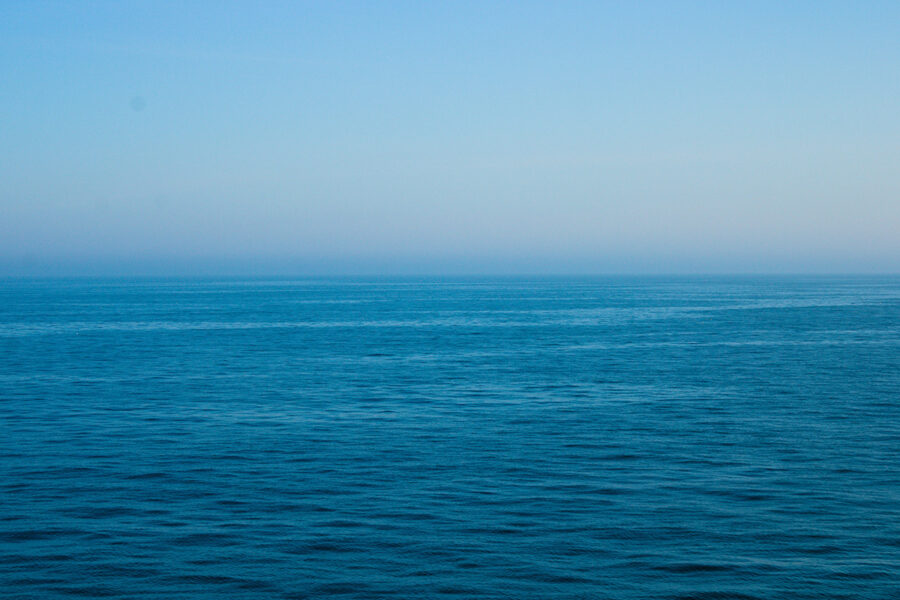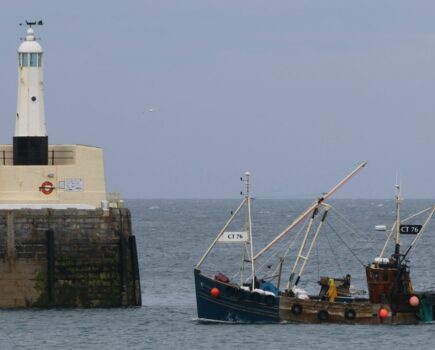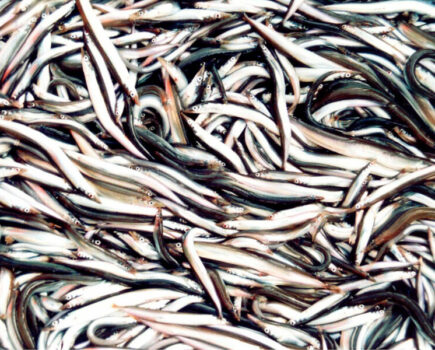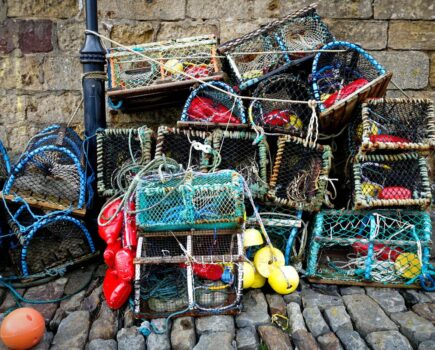Fishing federations condemn proposals as ‘unevidenced’ and ‘devastating’ for coastal communities
By Martin Harvey
The fishing industry has responded with frustration to UK Government proposals to ban bottom trawling across most of England’s offshore Marine Protected Area (MPA) network.
The government proposals – pre-released to some media outlets for World Ocean Day on Sunday, 8 June before being announced more widely the following day – say the measures will ‘help protect rare marine animals, as well as the delicate seabeds on which they rely, from indiscriminate and potentially irreversible damage’.
The plans could see bottom-towed gear banned in approximately 30,000km2 of sea across 41 offshore MPAs, as well as prohibiting the use of traps in 860km2 and bottom-set nets and lines in approximately 300km2 of the network. There are currently prohibitions on bottom trawling in 18,000km2 of English seabed.
Environment secretary Steve Reed said: “Bottom trawling is damaging our precious marine wildlife and habitats. Without urgent action, our oceans will be irreversibly destroyed – depriving us, and generations to come, of the sea life which we all enjoy. The government is taking decisive action to ban destructive bottom trawling where appropriate.”
The proposals follow ongoing campaigns by NGOs, which have intensified since the release of David Attenborough’s Ocean film, and a call for a blanket ban on bottom trawling in offshore MPAs from the House of Commons Environmental Audit Committee.
A 12-week public consultation has been launched by the MMO, and will run until 1 September. The MMO says that the proposals to be consulted on are ‘based on draft fisheries assessments which conclude that these measures are necessary to ensure that the conservation objectives of these MPAs can be achieved’.
These draft site-level assessments have been published along with other materials, including three fishing gear impact evidence documents covering bottom-towed gear, anchored nets and lines, and traps, and interactive maps.
The consultation allows for a general response, a response on specific regions (divided into North Sea, Eastern Channel, Western Channel and South West, and Irish Sea), and responses on specific sites. Responses can be provided by email, telephone or online here.
The MMO has indicated that stakeholder events will take place during the consultation period, at which contributions will be recorded.
The proposals have been welcomed by environmental groups including Oceana UK, which has been campaigning for a full ban on bottom trawling in all MPAs. Its executive director Hugo Tagholm was quoted in the original media release from Defra, saying: “Destructive bottom trawling has no place in Marine Protected Areas. These proposals provide a golden opportunity to safeguard these vital marine sanctuaries from the most damaging fishing practices.
“If these whole-site bans are fully implemented, this could provide an invaluable and urgently needed lifeline for England’s seas, which are so crucial for wildlife and climate resilience.”
Oceana UK also claimed that nearly 15,000 people had contacted Defra secretary Steve Reed ‘demanding action’ on the issue.
A new campaign film, The Bottom Line, was launched by the Blue Marine Foundation on World Ocean Day. The short film shows Stephen Fry and Theo James as a waiter and diner in a restaurant. As the customer receives his sustainable fish dish, the waiter also presents him with the ‘extras’ – a net-load of fish dumped onto the table, which the waiter claims is the bycatch from bottom trawling with ‘up to 80% of what is caught discarded or destroyed’.
Prior to the UK Government’s announcement, Seafish published an article on its website addressing questions that Ocean with David Attenborough raises about bottom trawling to provide a ‘science-based response to how fishing and marine conservation can work together’, as well as highlighting how the fishing industry continues to work to reduce its environmental impact.
Industry response: “Basing policy on false foundations sets a dangerous precedent”
Industry leaders have responded with frustration, with the National Federation of Fishermen’s Organisations calling the proposals ‘an astonishing attack on fishermen and coastal communities’ which ‘ignores the scientific approach used for previous rounds and the social and economic principles in the Fisheries Act’.
In a blog post, it also criticised campaigners and influencers for ‘chasing cheap and fleeting popularity’ and failing to recognise the impact on the fishing industry, coastal communities and the environment itself, saying: “They are not just opposing fishermen and their communities; they are opposing some of the most significant scientific voices in their field. They are opposing the truth, and that matters.
“Basing policy on these false foundations sets a terribly dangerous precedent. It will not produce outcomes that work for the environment, and it will be devastating for the fishing families whose lives and livelihoods it ruins.”
Elspeth Macdonald, chief executive of the Scottish Fishermen’s Federation, said: “It is extremely disappointing that the UK Government seems to have caved to the emotional, unevidenced siren calls of the environmental NGOs and Sir David Attenborough and announced a ban on trawling in English MPAs.
“We are sure that the Scottish Government will take a much more intelligent, grown-up and responsible approach to the rules and regulations around fishing in Scotland’s MPAs, one that is based on scientific evidence and allows coexistence between conservation and sustainable use.
“Banning fishing in such an arbitrary and ignorant fashion will deprive hardworking people of their jobs and cost very often marginal communities much- needed income. Far more carbon-intensive forms of food production will also be required in its place, ultimately defeating the very ends which campaigners hope to achieve.”
The Cornish FPO called the proposals ‘another hammer blow’ after the EU-UK deal which ‘ignores science, rhyme or reason and any thought for the leaps and bounds the fishing fleet has made when it comes to reducing its environmental impact’.
“There is no thought for displacement of the fleet, driving effort into other fisheries, the total lack of sound science and evidence of how fishing methods actually interact with the seabed, as well as the whole raft of unintended environmental consequences that such radical blanket bans will create,” it said.
There was, however, some support from the industry for the propsals, with Bally Philp, national co-ordinator of the Scottish Creel Fishermen’s Federation, saying: “We welcome the recent announcement of a consultation to protect the fragile habitats in England’s offshore MPAs (that have been specifically designated for sensitive benthic features) from destructive trawl and dredge fishing gears.
“However, we do have to question how it was possible for those MPAs, which have habitats that are vulnerable to trawling, to exist without this protection in the first place?”
This story was taken from the latest issue of Fishing News. For more up-to-date and in-depth reports on the UK and Irish commercial fishing sector, subscribe to Fishing News here or buy the latest single issue for just £3.50 here.
Sign up to Fishing News’ FREE e-newsletter here.








